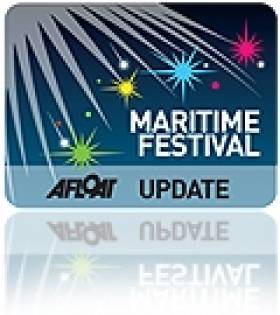Displaying items by tag: Foynes Irish Coffee Festival
#FoynesFestival – This year's Foynes Irish Coffee Festival takes place this coming Bank Holiday weekend (31 May-2 June), writes Jehan Ashmore.
The history of the 'Irish' Coffee which started 70 years can trace its origins back to the flying boats that flew across the Atlantic. It was along the banks of the Shannon Estuary that the Irish Coffee was invented as a unique treat to visitors during their en-route stopover between the continents.
The highlight of the festival will culminate on the final day (Sunday 2 June) when the Powers Irish Coffee Making Championship Final 2013 takes place at Foynes Flying Boat Museum.
As previously reported on Afloat.ie, the same venue in March opened a new Maritime Museum charting the history and role of shipping along the Shannon from the mouth of the estuary to Limerick Docks.
On the Saturday and Sunday are the Munster Mermaid Championships at the Foynes Yacht Club from where RIB tours will run into the estuary as part of the festival. In addition public tours of the Naval Service CPV L.E. Ciara (P41) are available during the weekend.
In addition to nautical events, the three-day festival includes other activities for all the family, visit the festival website for details of times of the full programme.
Foynes Irish Coffee Festival
#FUN ON THE SHANNON – Today is the last day of the Foynes Irish Coffee Festival, where there is still plenty to do and see during this afternoon's line-up of the festival programme.
In port the public will be able to visit the Naval Service coastal patrol vessel L.E. Orla (P41) between 2–5pm.
Keeping to matters nautical, the Munster Mermaid Championships is been held in the Foynes Yacht Club which is celebrating its 50th anniversary this year. To mark the occasion there will be a series of competitions and a fun day held on the water.
There is a Food and Irish Craft Fair, Pet Farm, a Ceile Mor, historical walks of the town and a McFaddens Carnival, for further details of times and locations see the events guide.
During the mid-afternoon there will be Irish Coffee making demonstrations in the Foynes Flying Boat Museum, where current Irish Coffee Making Champion Roisin Sweeney will be there.
In the evening the festival culminates when finalists will be competing for the Powers Irish Coffee Making Champion 2012. The event will also be held in the museum which features a replica of a flying boat that once served the mid-west hub airport.






























































